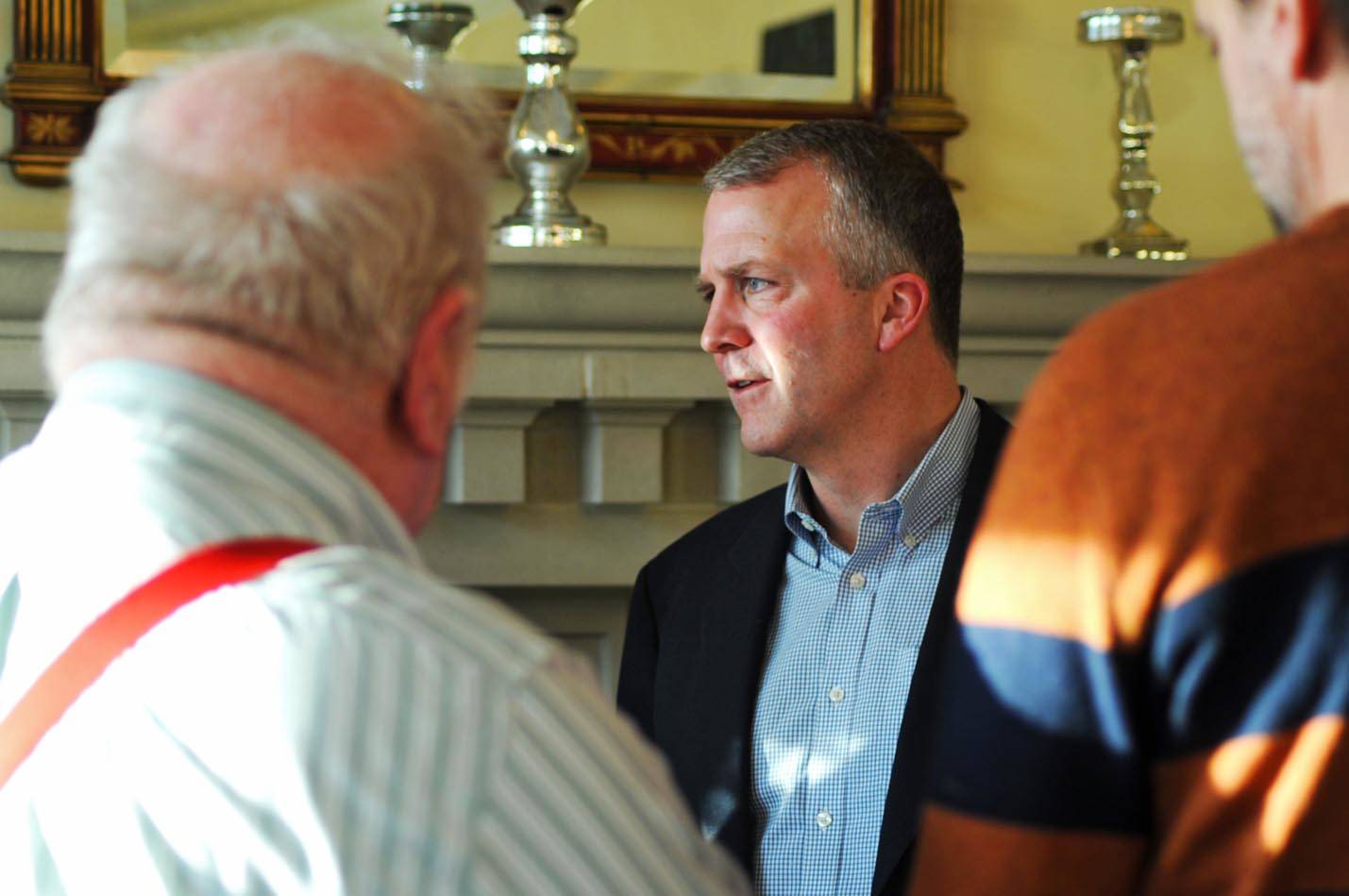Alaska’s junior U.S. senator is heading into 2018 with a sense of optimism about the state’s future.
Sen. Dan Sullivan (R-Alaska), now entering his third year in the U.S. Senate, said there are a number of things he’s excited about in the coming year. In an address to the members of three Kenai, Soldotna and Soldotna Kenai River Rotary Clubs, he revisited several of the major accomplishments of 2017 and previewed other upcoming legislation.
“If we get our policies right in Juneau, regulatory and from a tax perspective, I think Alaska really has the opportunity to be one of the hottest energy players in the world,” he said. “And that’s exciting, and I think that’s something we should all be focused on.”
The Alaska delegation has gained prominence in the last year. Rep. Don Young (R-Alaska), the state’s sole Congressman, was named the dean of the House of Representatives as its longest serving member after Rep. John Conyers (D-Michigan) resigned in late 2017. Sen. Lisa Murkowski’s office was flooded with phone calls from people all over the country during the Senate confirmation process for Secretary of Education Betsy DeVos and Murkowski led the Senate dissenters against the attempted health care legislation, ending in its defeat.
Alaska issues have attracted some national spotlight in the last year, too. The debate over the opening of the Arctic National Wildlife Refuge to oil and gas exploration, the use of the Congressional Review Act to repeal some regulations on national wildlife refuges in Alaska and the ongoing struggle with the cost of health care all drew national attention to the state in the last year. The opening of the Arctic National Wildlife Refuge, included in the tax reform legislation passed in late 2017, was a major victory for the Alaska delegation.
“It was quite a battle, and I guarantee you that the people in this room, whether you’re a Republican or a Democrat, that’s been an issue that had almost 80 percent support in the state,” Sullivan said. “There’s been literally thousands of Alaskans who have been trying to get that done for nearly four decades. And we got it done.”
Several companies have recently made major discoveries on Alaska’s North Slope, and the state is aggressively pursuing partnerships and funding for the construction of the Alaska LNG Project to bring a natural gas pipeline to a planned liquefaction plant in Nikiski, which are exciting opportunities, Sullivan said.
Beyond oil and gas, Sullivan also chairs the Senate committee holding hearings for the reauthorization of the Magnuson-Stevens Fishery Conservation and Management Act, the law prescribing management procedures for all federal fisheries. Sullivan said he is planning some revisions to include separate language for sportfishing, something sportfishing advocates have pushed for in field hearings.
“(Sportfishing and recreation) has never been a part of it, which I know is important to this community,” he said.
The last year has also been full of upheaval for Washington, D.C. as President Donald Trump took office and appointed new leaders to many of the federal departments. Sullivan said he supported many of Trump’s cabinet adviser choices and pointed out that Alaskans have taken prominent roles in federal government since the transition. Former North Pacific Fishery Management Council executive director Chris Oliver now leads the National Marine Fishery Service, former Alaska Department of Commerce, Community and Economic Development commissioner Chris Hladick now leads the U.S. Environmental Protection Agency Region 10, for example.
“These are still Senate-confirmed jobs, but we have been pushing really good Alaskans who want to sacrifice … move to Washington and serve in the federal government,” he said. “We’re getting really good people in.”
Congress is also working on boosting military spending, which will bring additional activity in Alaska, Sullivan said. The new administration is also supportive of streamlining government permitting processes, something Sullivan said he has been particularly focused on. In 2018, he said he plans to introduce a bill to streamline infrastructure permitting.
“(The bill) is a really serious regulatory and permitting reformat, which will really help the state and I think help the country,” he said.
Since the change in administrations and the Republican majorities in the House of Representatives and the Senate, the federal government has walked back several of the public land access and development closures implemented by former president Barack Obama’s administration. Beyond just the opening of the Arctic National Wildlife Refuge, the Department of the Interior is also looking at opening more offshore oil and gas drilling leases and changing the regulations on more federally controlled land, something Sullivan said he supports.
However, the Alaska Legislature has a hand in oil and gas development in the state, too. In the 2017 session, the Legislature formally closed out the oil and gas tax credits that incentivized some exploration in the 2010s, drawing protest from smaller companies that depended on the incentives to keep drilling.
Sullivan led the Alaska Department of Natural Resources when the last oil and gas taxation reform bill, known as Senate Bill 21, was passed. He said it proved that it worked and that constantly adjusting oil and gas tax structures leads to instability and discourages investment.
Both he and Murkowski will address the Legislature and he said he offers advice to the legislators on ongoing issues, though he said he didn’t plan on extensive involvement.
“We’ve got a lot of work to do back in Washington,” he said.
Reach Elizabeth Earl at elizabeth.earl@peninsulaclarion.com.

